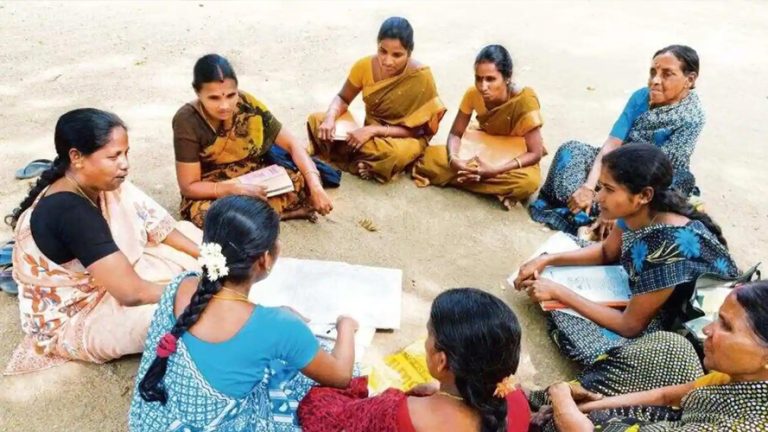Self Help Group is playing an important role in providing women with micro-loans to sustain their businesses
Self Help Groups is playing an important role that can act as a bridge between women entrepreneurs who have the will to begin an enterprise but do not have the resources to fulfill their dream, and the finances needed for it. An SHG comprises a small group of women who come together to make regular monetary contributions.
Emerging as important micro-finance systems, SHGs work as platforms that promote solidarity among women, bringing them together on issues of health, nutrition, gender parity, and gender justice. SHGs have already made a significant contribution in developing entrepreneurship aptitudes among rural women by enhancing their skills and giving them a chance to engage in various entrepreneurial activities.
In India, the SHG movement began in the 1980s, when several non-government organizations mobilized and organized poor communities in rural areas and offered them formal channels for social and financial support. This program gained momentum with the National Bank for Agriculture and Rural Development linking a small number of such groups with banks. Called the Self-Help Group Bank Linkage Programme, this revolutionary initiative connected group members, many of whom had never had a bank account before, to formal financial services in a sustainable and scalable manner.
In Maharashtra, specifically, the concept of SHGs goes way back to 1947, when a few women of Amravati district established an SHG with just 25 paise. Today, apart from being a conduit for credit in the state, the Self Help Group is playing an important role in delivering services ranging from entrepreneurial training, livelihood promotion, and community development for women entrepreneurs.
SHGs such as Mahila Arthik Vikas MahilaMandal, UMED Abhiyan under Maharashtra’s department of rural development’s State Rural Livelihood Mission, and government schemes such as Tejaswani, etc, have proven beneficial in the development of women entrepreneurship for the cause of women’s empowerment. A study conducted by Ashwini Deshpande and Shantanu Khanna in 2020 reported that SHGs in Maharashtra have had a strong impact on a range of indicators related to women’s empowerment in the state, including political participation, knowledge of administration, financial literacy, mobility, and decision-making.
In Maharashtra alone, 527,000 SHGs have had a role to play in accounting for over 50% of all women-led small-scale industrial units in India, which shows that SHGs can lead to the holistic development of women entrepreneurship.
Self Help Groups are playing an important role that is exceedingly relevant today because their provision of micro-loans helps overcome regional imbalances as well as information asymmetries, thus offering a level playing field in terms of access to resources for women. The multi-faceted IFMR study conducted by the ministry of rural development evaluated the impact that SHGs have had on livelihoods, and thereby on consumption, expenditure, and savings patterns in households whose women are part of it. The study found that women aided by SHGs were 10% more likely to save regularly, resulting in economic empowerment, while working towards a better future for the next generation.
The revolutionary momentum that SHGs have created has given women an important sense of self-assurance in their journey to become aatmanirbhar or self-reliant. Observing the crucial role they play, corporations and foundations globally have designed SHG-led programs to help women achieve economic empowerment.
Initiatives such as the UdyamStree campaign by EdelGive Foundation, for example, have focused on women entrepreneurs in Maharashtra and Rajasthan, among other states, by leveraging SHGs such as MAVIM, and other relevant stakeholders. Facebook’s Pragati and Google’s Women Will, among others, have also moved the needle in fostering a level-playing field for women entrepreneurs.
When they become members of SHG they engage in public participation and social activities. This ensures group spirit, increased self-esteem, and fulfillment in life. Such participation expands the horizons of participants, evolves them as decision-makers and as democratic, economic, social, and cultural beings.
In other words, we can say that the Self Help Group is playing an important role that ultimately contributes to the overall development of a country like India, empower women socially and economically, and is an effective instrument. Still, a large segment of the population is disadvantaged women, illiterate, exploited both, in the social and economic spectrum, and is deprived of basic rights.






Add comment